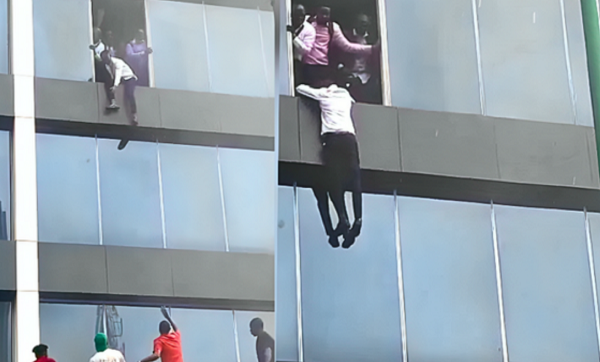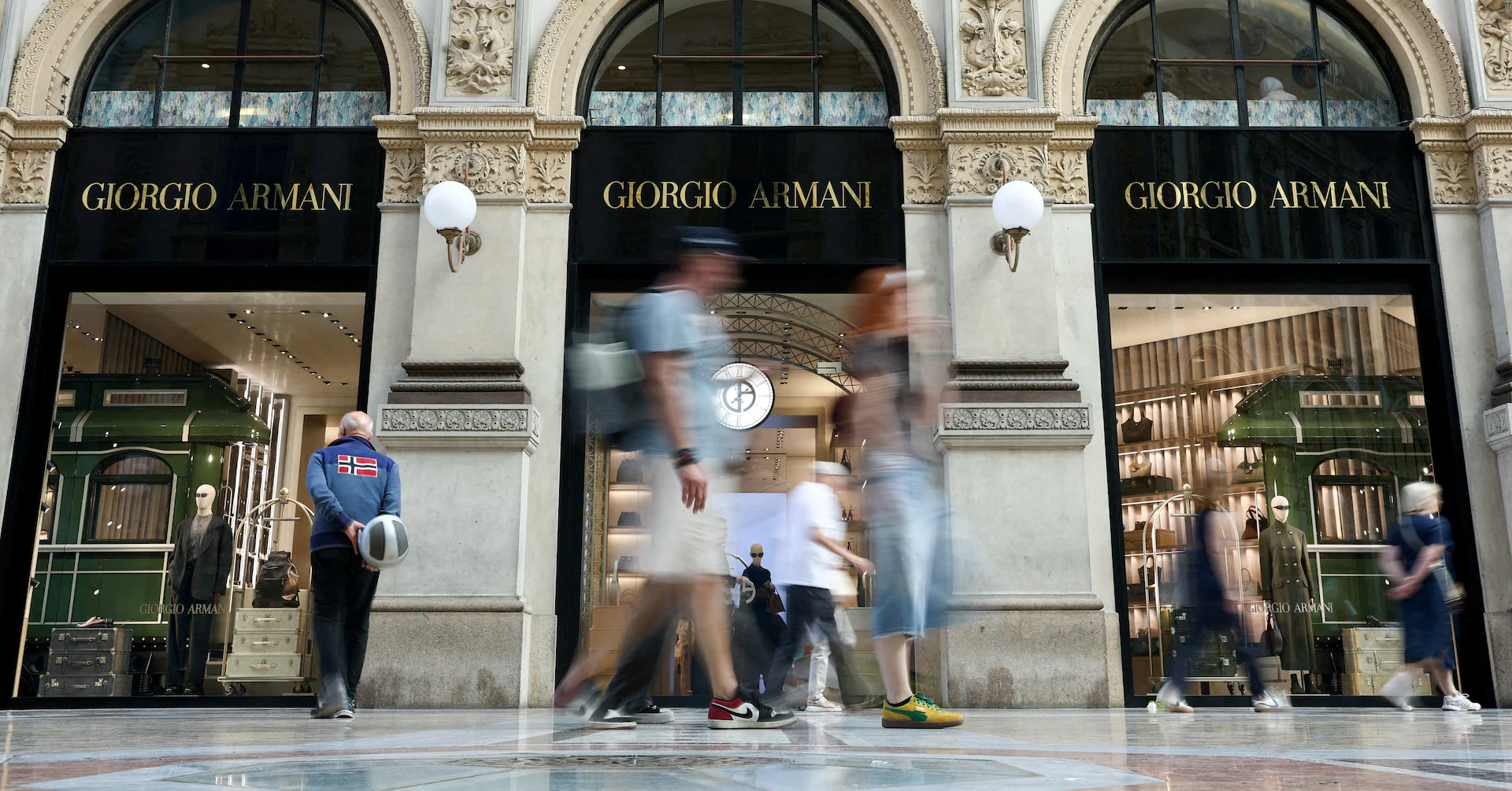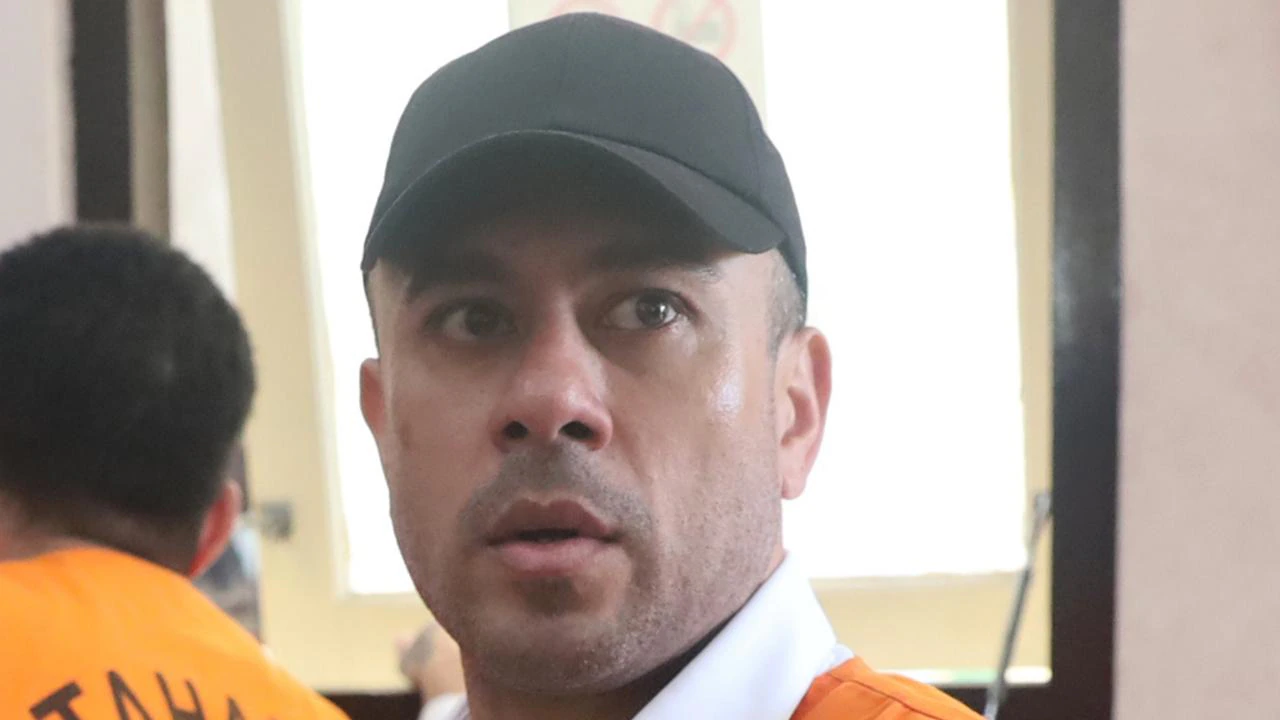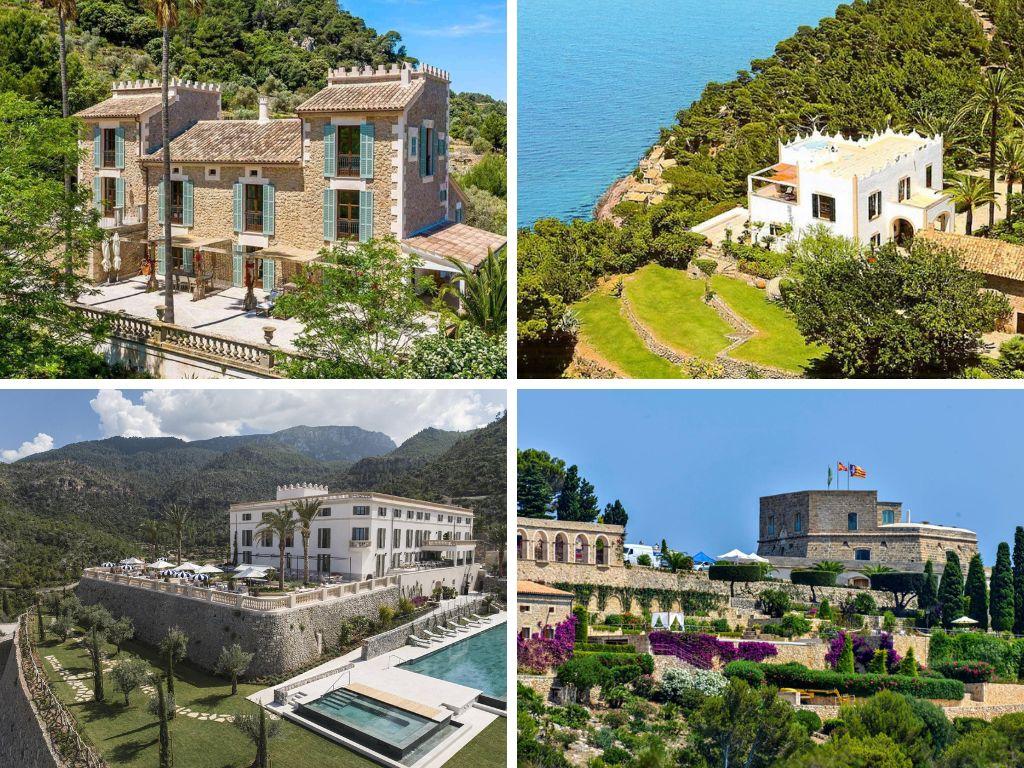By The Nation,Udeh Onyebuchi
Copyright thenationonlineng

Lagos Island is reeling from one of its darkest days in recent memory. Within a span of 12 hours, two separate infernos, one at the upscale Afriland Towers on Broad Street, the other at the bustling Mandilas Market, tore through the country’s commercial heartbeat. The twin tragedies claimed lives, wiped out businesses worth billions and exposed dangerous lapses in safety protocols that left both corporate workers and market traders scrambling for survival, UDEH ONYEBUCHI, ZAINAB OLUFEMI and HALIMAH BALOGUN, report.
In a devastating 12-hour period that has sent shockwaves through Nigeria’s commercial nerve centre, twin fire outbreaks on Lagos Island have left a trail of destruction, claiming lives, obliterating businesses and exposing a chilling disregard for safety protocols in the heart of the nation’s economy.
The fires, which erupted almost simultaneously on Tuesday at the prestigious Afriland Towers on Broad Street and the bustling Mandilas Market, have resulted in confirmed fatalities and losses estimated in billions of naira, plunging traders and corporate employees into despair and financial ruin.
Afriland Towers: a corporate tragedy unfolds
The drama began in the upscale Marina area. Thick, black smoke billowed from the inverter to the basement of Afriland Towers, a seven-story landmark building that houses major institutions including the Federal Inland Revenue Service (FIRS), United Capital, Heirs, Avon, the United Bank for Africa (UBA) and Afriland itself, sending occupants scrambling for safety. The tower, which stands firm but scarred with broken windows, quickly emptied as workers rushed to escape the growing chaos.
A keke (tricycle) rider, who declined to give his name, said: “I had to help by spreading a foam, so that when they jumped, they could land on it. But some of them did and died because of the impact of the fall.”
The technical failure was compounded by a catastrophic human and structural error. The building’s safety design was fatally flawed. The staircase required an access card for entry while the security personnel had switched off power, which resulted in the elevators failing. With the staircase inaccessible to many and the smoke thickening, desperate workers were forced to break windows to escape the suffocating fumes.
A critical safety component was also missing because there was absence of a fire hose reel. “The staff could not access the staircase because there was no power in the elevator. People had to break the windows to escape the smoke,” said Emma, who sells on the roadside opposite the building.
The consequences were dire. Onyeka Igwe, a witness, narrated the horrifying scene: “Everybody was now running. I saw someone trying to jump down from the window seventh floor, some on the fifth, some on the fourth floor.”
He narrated further that a very good friend of his jumped out of the building and died.
Seun, a bus conductor, told the nation that he had to leave what he was doing to help the people that were trapped. “Immediately I saw the smoke and people were shouting, I had to rush and climbed. I saved five people before fire service came,” he said.
Tony Elumelu, the CEO of the United Bank for Africa (UBA), which has a branch in the building, said he cut short his trip to the United States.
“I am shattered by yesterday’s devastating incident at Afriland Towers that took the lives of our dear colleagues. No words can capture the magnitude of this loss,” he said in a personally signed statement, observing that a minute’s silence was held across all group companies.
READ ALSO: How Nigerians have transformed BBNaija reality TV show
The Federal Inland Revenue Service (FIRS), which occupied the sixth and seventh floors, confirmed the tragic loss of four staff members: Ekelikhostse George, David Sunday-Jatto, Nkem Onyemelukwe, and Peter Ifaranmaye. The United Capital PLC also lost six employees, bringing the confirmed death toll from the Afriland fire to 10.
Mandilas: A trader’s nightmare repeated
As the embers at Afriland were still smouldering, a second, separate inferno occurred at about 8 pm, this time in the heart of the commercial market a plaza called ‘Central Plaza, Mandilas’.
Walking through the line of Central Plaza, the cause of the fire seemed almost preordained. An eyewitness noted how the wiring was “very close to each other and jam-packed,” with generators positioned facing one another, creating a tinderbox environment. The plaza, which accommodated shops selling clothes, shoes, and housed Bureau de Change operations, was razed.
The Special Adviser on Central Business District (CBD), Bola Olumegbon-Lawal, was unequivocal in blaming the incident on generators kept on the upper floors of the building; a practice the government had repeatedly warned against.
“I know they have a generator up there, and we have been telling them that they should all bring their generators to the ground floor. So generator is the cause of this fire,” she stated, announcing that the government was locking all non-compliant plazas indefinitely.
For the traders, the loss is catastrophic and personal. Ebuka Azu, a trader, was left speechless. “I am short of words, feeling like I am dreaming. Someone should wake me up because the last time we experienced this was in 2018, and now I have lost millions of naira.
“In terms of insurance, it is only those who are educated that insured theirs.”
Chinedu Okorie, a young trader recently settled by his boss, was inconsolable seeing his new beginning turn into ashes. “My oga (boss) had just settled me and I opened a shop, selling clothes. But everything is gone. Where do I start from?” he queried.
The human cost extended beyond shop owners. Commission agents like Peter Olushola, who earned commissions bringing customers to traders, also saw his livelihood vanish. “This is where I get money to take care of myself. My boss’s business is gone,” he said.
The Iya Oloja of Mandilas, Alhaja Rashidat Adeniji, confirmed that the losses ran into billions of naira. She pleaded for government intervention, noting that many traders were operating on loans.
“We sell luxury goods in Mandilas. It is one of the biggest markets in Lagos State. The situation is beyond our expectations. It is beyond something we can handle.”
A jeweller from Ebonyi State estimated his loss at more than ₦30 million. “The business that I have done for many years, everything was burnt to ashes just like that,” he said, visibly shaken.
Another shop owner, a victim of a previous fire in the same area, questioned the possibility of government help. “What can the government do? They didn’t help the first time, how can they help now?” he wondered.
Mandilas unsafe power practices
Beyond the destroyed goods and shattered shops, the Mandilas inferno has laid bare a deeper crisis: unsafe power practices which traders and customers say have long been ignored.
The wiring in Mandilas, by many accounts, was nothing to write home about. Each shop was connected by a chaotic web of wrong connections; a disaster waiting for the perfect spark.
Mary Okonkwo, a regular buyer of fabrics, said: “Every time I come here, I see wires hanging loosely and lying close to one another. I always feared this would happen one day.”
Ibrahim Lawal, a passerby, pointed to the ruins as proof of negligence: “Look at the ruins. This was avoidable. The way they tap light here is not ordinary. You would see 10 people pulling from one small cable.”
Chukwuma Nnaji, a passenger, said the issue went beyond one fire: “This is about our culture of ignoring safety. Everyone knows Mandilas wiring is dangerous. Just look at how the connection is. Something that is very avoidable.”
Tinubu Akinwunmi condemned the unsafe practices on X, saying: “See the way people tap electricity in that market; it is awful. The market must be rebuilt, and all electrical works perfectly redone with proper safety concerns addressed before reopening.”



